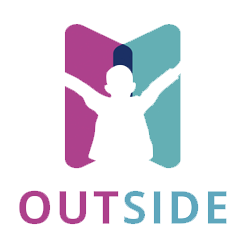OUTSIDE - Toolkit & Protocol
No more feeling uncomfortable.
Hikikomori
Hikikomori (ひきこもり or 引きこもり literally to withdraw, to be secluded; i.e. “acute social isolation”?) is a Japanese term for the social phenomenon of secluded people who have chosen to abandon social life; often seeking extreme degrees of isolation and confinement, due to various personal and social factors in their lives.
The term refers to the sociological phenomenon as well as to the people who belong to this social group. In Western terminology, this group may include individuals who suffer from social phobia or social anxiety problems. This can also be caused by agoraphobia, avoidant personality disorder or extreme shyness, or by a love break-up.
While some people feel pressure from the outside world, and suffer from agoraphobia or social phobia, a hikikomori (better known as “Antisocial Otaku”) reacts with complete social isolation to avoid all outside pressure. They may lock themselves in their bedrooms or some other room in their parents’ house for long periods of time, often years. They usually do not have any friends, and mostly sleep during the day, and watch TV, surf the internet or play video games at night. All this makes them an extreme case of parasitic bachelors (a Japanese expression for those who live on instant soups, living at home with their parents for convenience).

Hikikomori
No more feeling uncomfortable.
Men more than women
In Japan, it tends to affect men more than women.
Sociological phenomenon
The term refers to the sociological phenomenon as well as to the people who belong to this social group
References
National Library of Medicine
Hikikomori, A Japanese Culture-Bound Syndrome of Social Withdrawal? A Proposal for DSM-V
Britannica Education
Encyclopædia Britannica Group. Science & Techonlogy
The Conversation
Hikikomori: understanding the people who choose to live in extreme isolation
The Economic Times
What's Hikikomori? Why 15 lakh Japanese are living in isolation?
CNN
Japan was already grappling with isolation and loneliness. The pandemic made it worse

